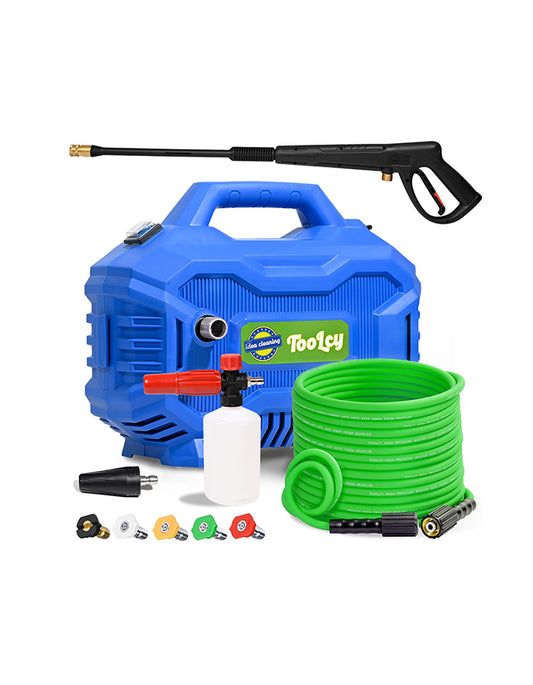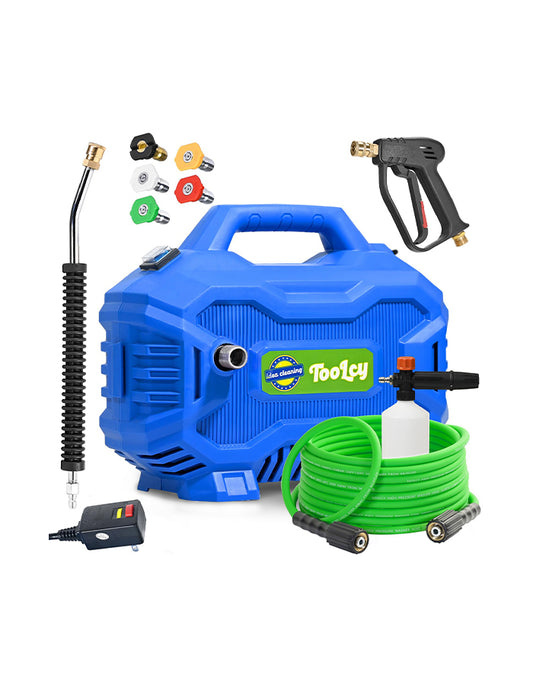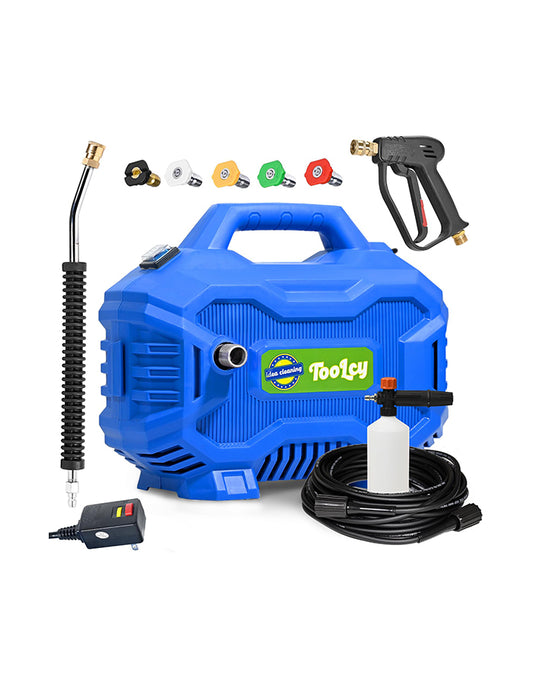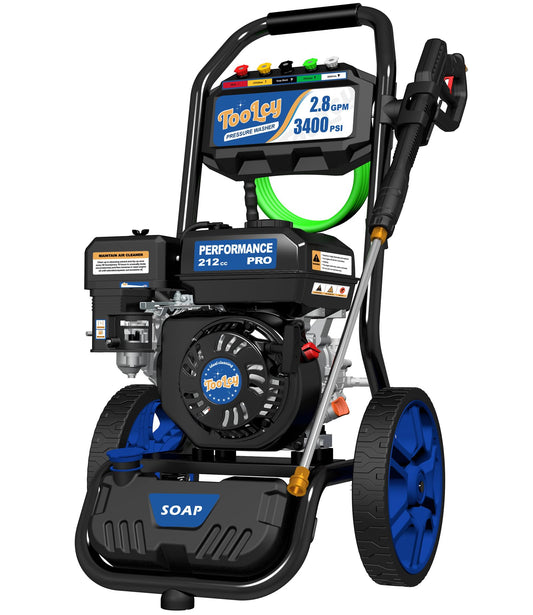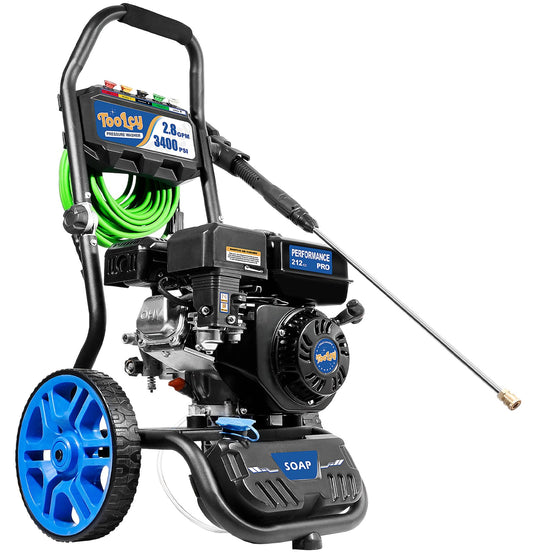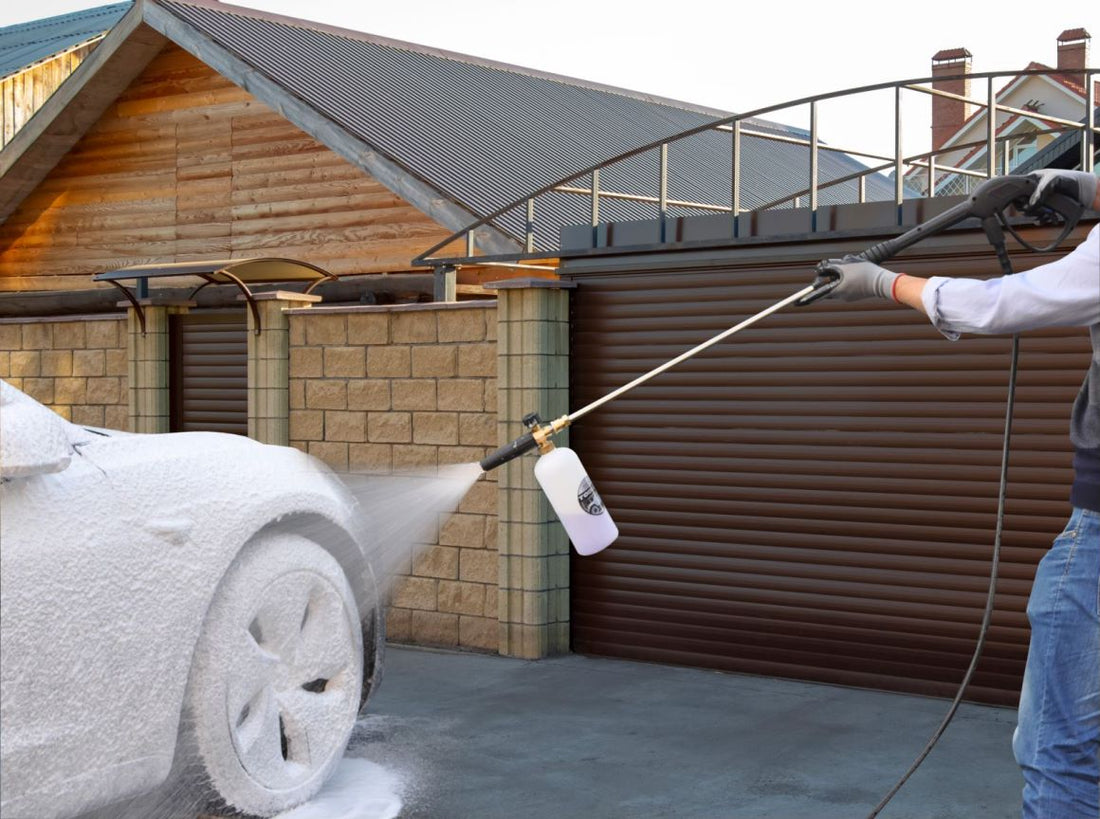
How to Choose the Best Pressure Washer for Your Needs
Share
When it comes to tackling cleaning tasks around your home, selecting the right pressure washer can make all the difference. The choice typically boils down to two main types: gas pressure washers and electric pressure washers. Both offer unique advantages, and your decision will largely depend on your specific needs and preferences. Here’s a guide to help you decide which type is best for you.
A gas pressure washer is a traditional choice that many are familiar with. Known for its powerful performance and durability, it is designed to handle demanding and frequent cleaning tasks.
In general, electric pressure washers are simpler to operate because they have lower power output and require less complicated setup.
Benefits of Gas Pressure Washers:
- Provides powerful and substantial cleaning power for challenging jobs
- Highly durable
- Portable with no need for cords or electrical outlets
- With proper maintenance, they can last for many years
- No need to remember to charge a battery
Considerations:
- Gas pressure washers produce fumes and are noisier than electric models.
- They generally cost more than electric pressure washers.
- Regular maintenance, such as oil changes, is required.
- They can be heavier and more difficult to start.
Advantages of Electric Pressure Washers:
- Generally more affordable
- Quieter compared to gas models
- Environmentally friendly
- Typically easier to start and operate
- Simpler to maintain than gas pressure washers
Considerations:
- Require an electrical outlet or a charged battery to function
- Usually provide less power than gas pressure washers
Electric vs. Gas Pressure Washers: Power & Performance
To determine the power of a pressure washer, you need to consider two key metrics: PSI and GPM. PSI measures the water pressure in pounds per square inch, while GPM indicates the gallons per minute of water flow. It is essential to consider both PSI and GPM to evaluate which pressure washer to choose.
Example:
- Pressure washer A: 3000 PSI*2.0 GPM
Better suited for tasks that require strong pressure and powerful flushing but offer slower and less extensive rinsing.
- Pressure washer B: 2000 PSI*3.0 GPM
Offers faster cleaning with greater water flow but less pressure, making it ideal for rinsing and covering larger areas.
Gas pressure washers usually range from 2,000 PSI to 5,000 PSI, whereas electric models typically range from 1,200 PSI to 4,000 PSI. To select the appropriate pressure washer, evaluate the cleaning tasks you need to accomplish and choose a model that meets those requirements.
How to Choose the Best Pressure Washer for Your Needs
If you are a homeowner needing a simple washer for light cleaning tasks, such as washing cars or removing surface dirt from sidewalks, an electric pressure washer is ideal. It requires minimal maintenance, is cost-effective, and gets the job done effectively, though it may not be the fastest or most efficient option. Interested in an electric pressure washer? Consider the Toolcy Compact Electric Pressure Washer, which delivers high power output with convenient portability for versatile cleaning.
For those needing stronger cleaning power for deep cleaning projects such as decks, sidewalks, siding, fences, railings, garage floors, and exterior walls, a gas pressure washer is preferable. Choose a model with a 2.5 GPM output or higher to utilize attachments like surface cleaners, which enhance efficiency on large or heavily soiled surfaces. Consider our Toolcy Spedy Gas Pressure Washer series, which offers strong PSI and GPM. These models combine powerful performance with effortless operation, delivering impressive cleaning strength with easy-to-use controls.

